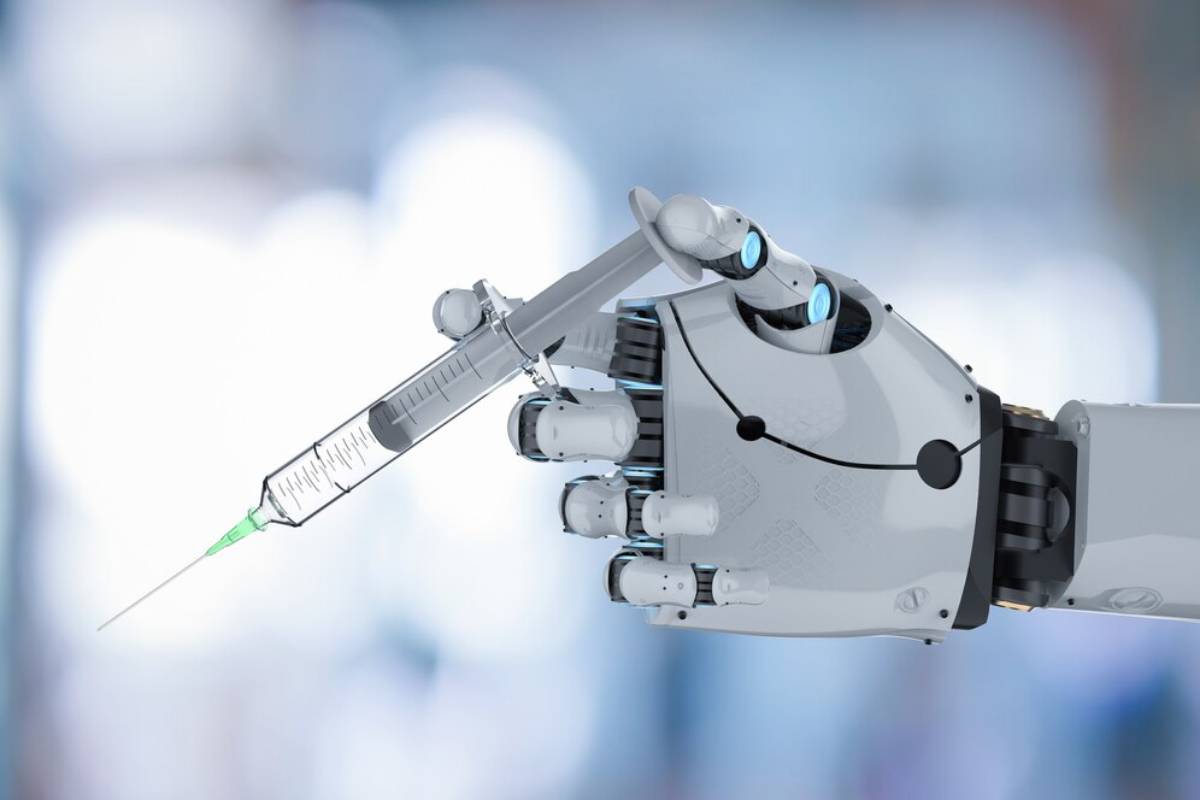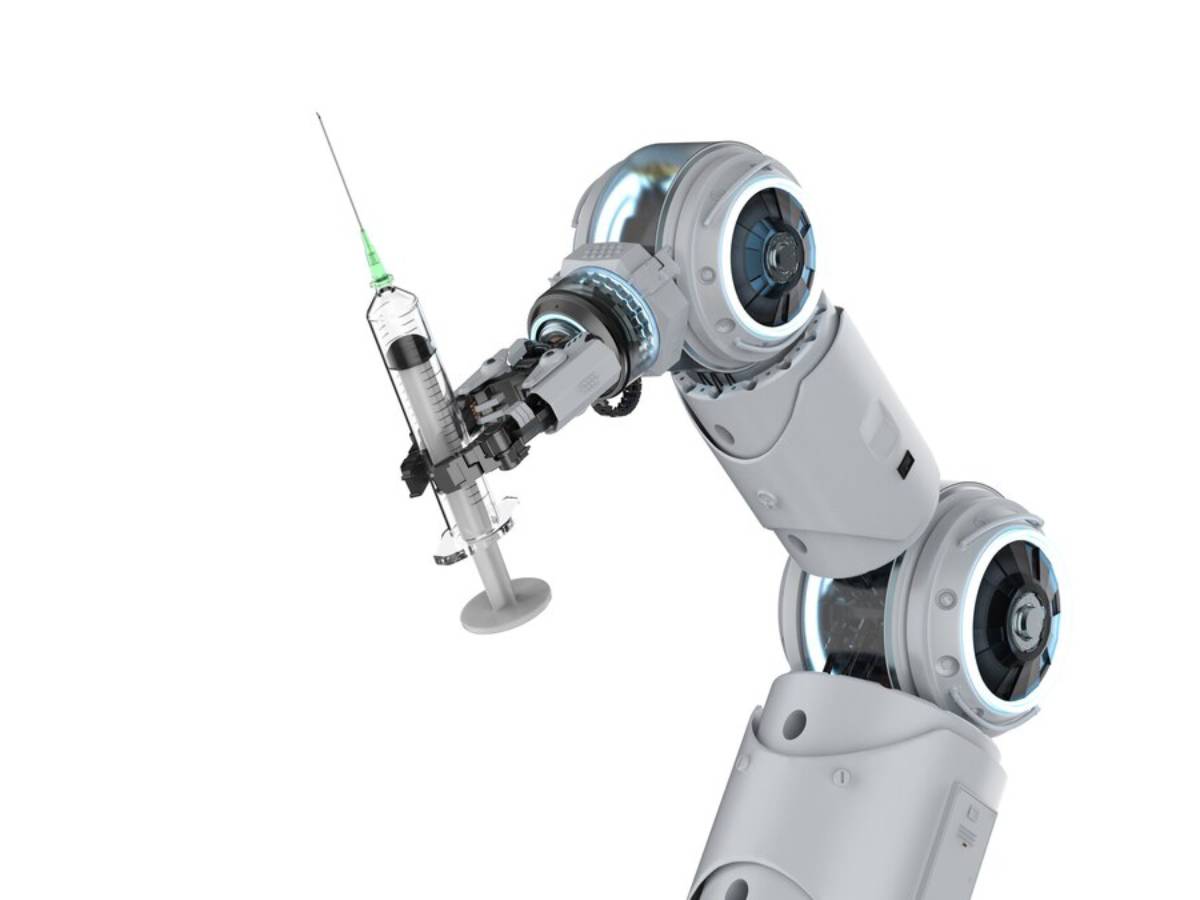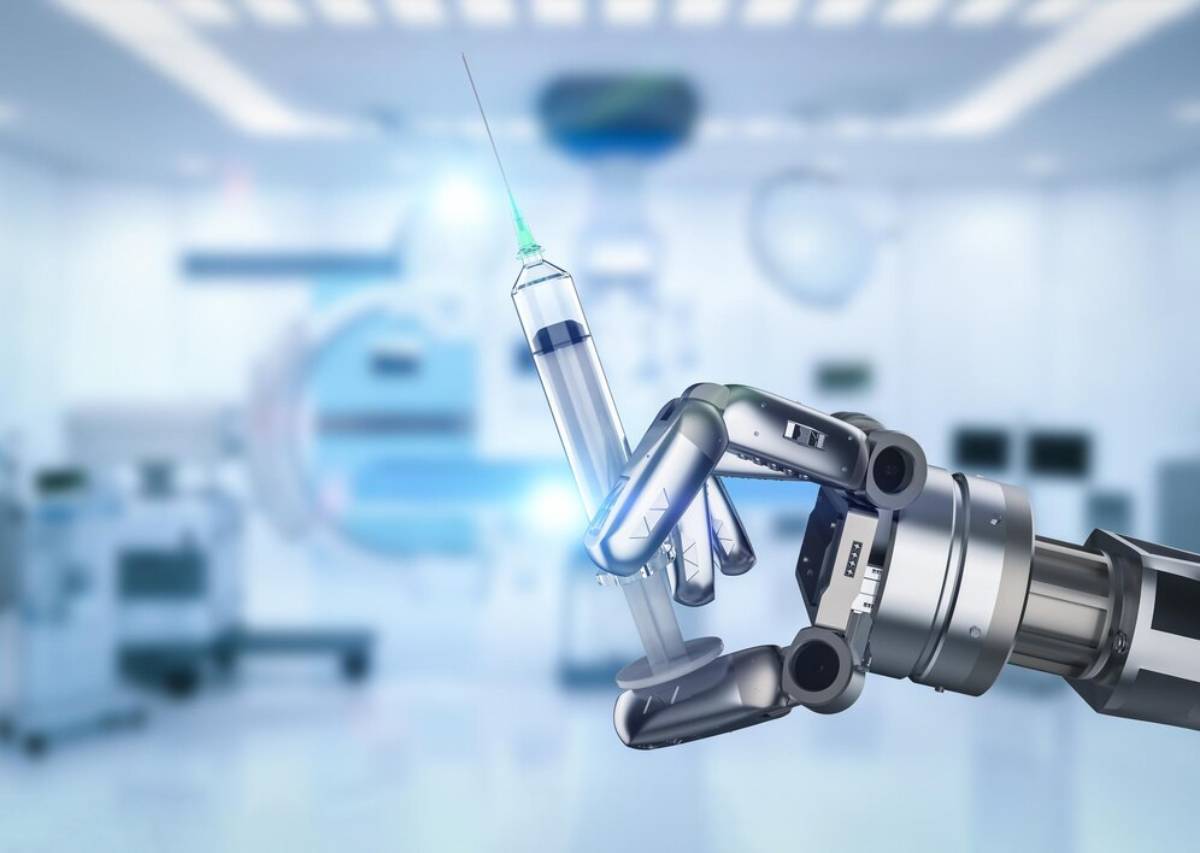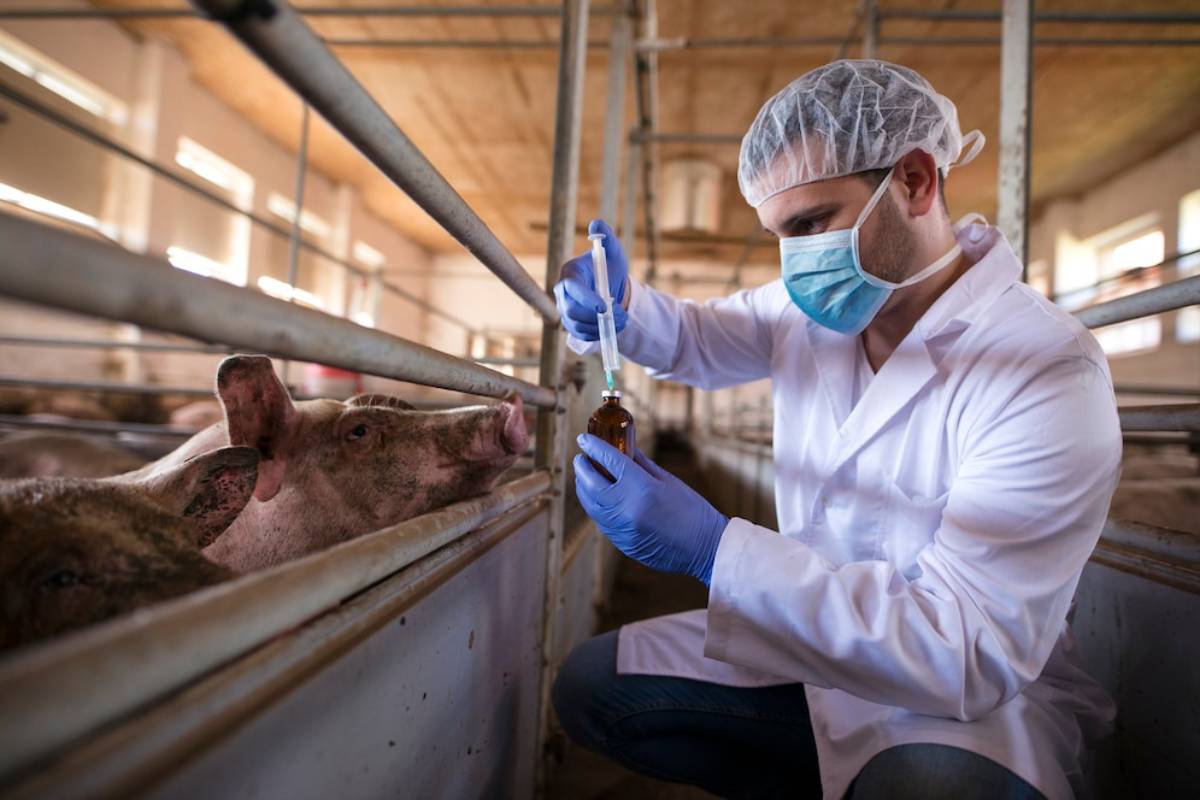
How AI is Accelerating Vaccine Development
In the fast-changing field of biotechnology, artificial intelligence (AI) is a game-changer. It is especially important in vaccine development. With new and existing infectious diseases, the need for quick and effective vaccine development is urgent. AI offers unique abilities that traditional methods can’t match. But how exactly is AI revolutionising vaccine development? And why is it crucial for the future of global health?
The importance of AI in vaccine development cannot be overstated. AI uses large data sets and smart algorithms to find potential vaccine candidates. It can also make clinical trials faster and tailor vaccines to fit individual genetic profiles. However, there are common misconceptions about AI’s role in biotechnology. Some believe AI is merely a tool for data analysis, while others fear it might replace human expertise. AI boosts human creativity. It helps us innovate and speeds up progress in pharmaceuticals.
Key Benefits / Why It Matters
Revolutionising Vaccine Discovery

AI has changed how we start vaccine development. Finding good vaccine candidates used to take a lot of time. It often took years of research and trials. With AI, this timeline is dramatically shortened. AI algorithms can analyse large datasets, including genomic data. They help find potential antigens that may trigger an immune response. This capability not only speeds up the discovery process but also increases the likelihood of success.
Enhancing Biotech Innovation
AI’s impact on biotech innovation extends beyond vaccine discovery. AI helps create new vaccine methods by simulating biological processes and predicting results. AI can show how vaccine parts work with the human immune system. This helps researchers improve formulations even before testing in the lab. This predictive power is invaluable in an industry where trial and error has traditionally been the norm.
Streamlining Clinical Trials
One of the most significant bottlenecks in vaccine development is the clinical trial phase.
AI tackles this challenge by:
- Improving patient recruitment
- Optimising trial designs
- Predicting trial outcomes
AI can analyse patient data. This helps find good candidates for trials. It also ensures the sample is diverse and representative. AI-driven analytics can track trial progress in real-time. This helps researchers make data-driven changes that improve trial efficiency and effectiveness.
Personalising Vaccination
The concept of personalised medicine is gaining traction, and AI is at the forefront of this movement. AI can analyse genetic, environmental, and lifestyle data. This helps create vaccines that fit individual needs. This personalisation boosts vaccine efficacy and lowers the risk of side effects. As we learn more about genetics, AI will play a key role in personalising vaccines. This will lead to safer and more effective immunisation strategies.
Data-Backed Insights
AI can process a lot of data. This helps researchers find insights they couldn’t reach before. AI finds new paths for vaccine development by spotting patterns and links in complex data. AI can find genetic markers linked to disease risk. This helps create targeted vaccines. These data-driven insights help boost pharmaceutical innovation and enhance public health.
Additional Expert Tips & Common Mistakes to Avoid
Best Practices in AI-Driven Vaccine Development
To harness the full potential of AI in vaccine development, it is crucial to follow best practices. Firstly, collaboration between AI specialists and immunologists is essential. AI offers the computational power, but we need domain expertise to interpret results and guide research. Secondly, maintaining data integrity is paramount. AI relies on high-quality data, and any inaccuracies can lead to erroneous conclusions. Regular data audits and validation are necessary to ensure accuracy.
Avoiding Common Misconceptions
Despite its potential, AI in vaccine development is often misunderstood. A common misconception is that AI can replace human expertise. In reality, AI is a tool that enhances human capabilities, not a substitute. Another misconception is that AI-driven results are infallible. While AI can process data at an unprecedented scale, it is still reliant on the quality of input data and the algorithms used. Understanding these limitations is crucial to leveraging AI effectively.
The Impact of AI on Pharmaceutical Innovation
AI’s influence extends beyond vaccine development to broader pharmaceutical innovation. AI speeds up drug discovery and development. This cuts costs and shortens time-to-market. As a result, lifesaving treatments reach more people. AI-driven innovations can help find new treatment targets. This can change how we treat different diseases. AI technology is evolving quickly. Its impact on the pharmaceutical industry will grow. This growth will drive advancements in healthcare and improve patient outcomes.
Advanced Insights / Expert Recommendations
Embracing AI for Future Vaccine Challenges
As we look to the future, the role of AI in addressing emerging vaccine challenges cannot be overstated. With the threat of pandemics and the emergence of new pathogens, the need for rapid vaccine development is critical. AI can model how diseases spread and predict outbreaks. This helps in developing vaccines early, so we are ready for future health crises. AI can help create universal vaccines. These vaccines can protect against many strains of a virus.
Unique Industry Perspectives
Industry experts highlight the importance of regulatory frameworks in facilitating AI-driven vaccine development. AI has many benefits. However, regulatory bodies need to adjust to ensure AI applications are safe and effective. Collaboration among industry stakeholders, regulators, and policymakers is key. It helps foster innovation and protects public health.
Lesser-Known Insights
A lesser-known aspect of AI in vaccine development is its potential to address global health disparities. AI can cut development costs and timelines. This makes vaccines cheaper and easier to access, especially in low-resource areas. AI can help create vaccines for neglected tropical diseases. These diseases often get little attention and funding. Focusing on these areas helps AI boost global health equity. It also improves outcomes for underserved groups.
Conclusion: Embracing the Future of Vaccines with AI

In summary, AI is changing vaccine development. It makes immunisation faster, more efficient, and more personalised. AI boosts biotech innovation and speeds up clinical trials. This gets lifesaving vaccines from research to market fast. So, everyone can access them on time. To unlock AI’s full potential, we need teamwork, data integrity, and awareness of its limits.
To tackle the challenges of vaccines today and in the future, we must embrace AI-driven solutions in modern healthcare. We can use AI to boost public health worldwide. By encouraging innovation and focusing on global health equity, we can achieve better health outcomes for all.
Stay updated on the latest in AI and vaccine development. Subscribe to industry newsletters, attend conferences, and connect with experts. Together, we can create a future where AI helps healthcare and improves lives worldwide.
What are your thoughts on AI’s role in vaccine development? How can we ensure its responsible and effective use in addressing global health challenges?


